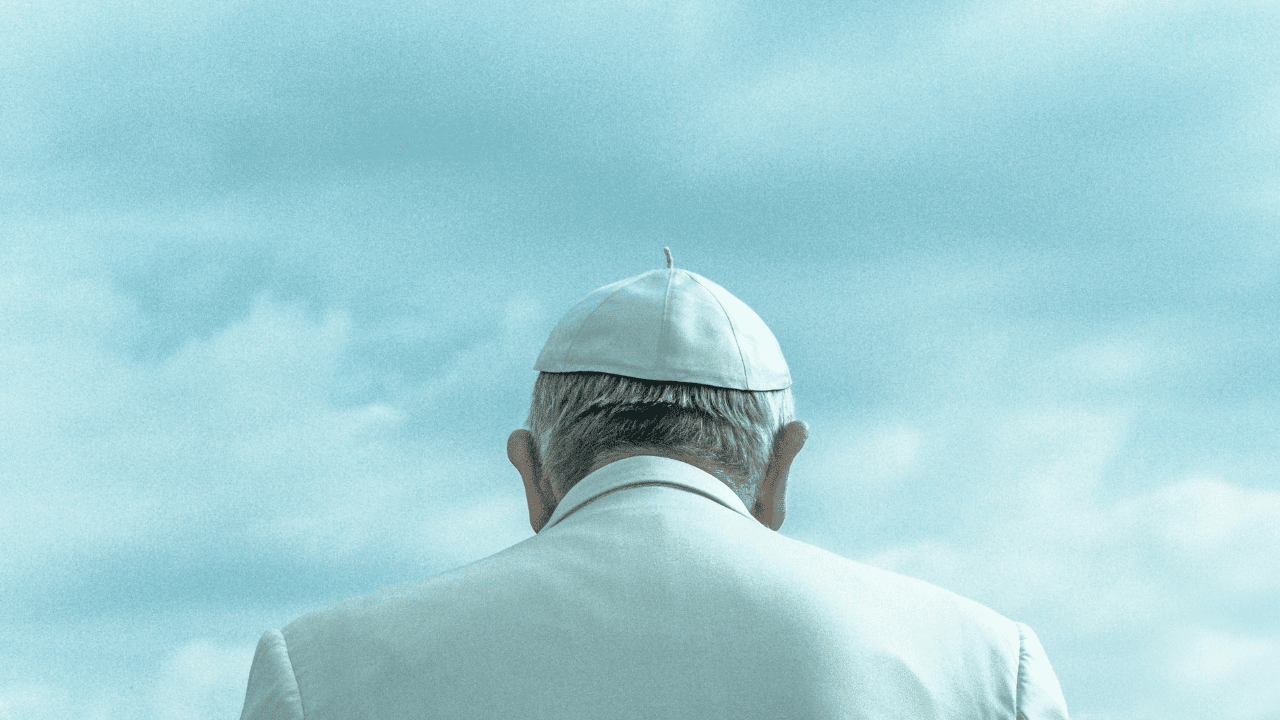Become part of the Pints With Aquinas community by supporting the show on Locals. Depending on the amount of your monthly gift, you’ll get access to some pretty awesome perks, from the “Morning Coffee” podcast to monthly spiritual direction videos from Fr. Gregory Pine!
Has Pope Francis Lost His Office?

Pope Francis has his fans and detractors. Some people love his easygoing style and openness. Others see him as an enemy of tradition who is wreaking havoc on the Church.
Then there are those who claim that Pope Francis is a heretic who has forfeited the office of the papacy.
Obviously, this is a very serious claim. If true, it means that Francis is acting as an antipope and should not be followed. If false, it’s misleading the faithful and harming the unity of the Body of Christ.
Is Francis still the pope or not? Let’s investigate.
What is heresy? The Catechism of the Catholic Church defines it as “the obstinate denial or obstinate doubt after the reception of baptism of some truth which is to be believed by divine and Catholic faith.” (These truths are called dogmas. Check out this blog to learn the difference between a doctrine and a dogma.)
That is a very narrow definition. Unfortunately, some Traditionalists use the word “heresy” in a much looser, ambiguous way than the Church. To condemn Pope Francis of heresy, you first have to prove that he committed heresy in the way the Church itself officially understands it (and not the way some sedevacantist podcaster defines it).
You can’t claim a pope is a heretic simply because he says something ambiguously or talks about changing a non-infallible doctrine or discipline.
But what if you could prove that the pope committed heresy?
Some radical Traditionalists appeal to St. Robert Bellarmine as proof that a pope loses his office by committing heresy.
But they leave out another important teaching of this great saint: A Catholic pope or bishop who teaches heresy is not considered a heretic until he is formally judged and convicted by the Church.
Some past Dominican theologians have gone a step further. They said that after a conviction, the faithful should still wait for a council to command them to avoid the pope. And at least one past council has said that Catholics cannot separate themselves from a heretical bishop without a judgment from the Church.
The Code of Canon law states that one who holds office in the Church does not lose his office until it is declared that he lost it. Once again, it’s for the Church to make that call. Individual Catholics don’t have the authority to depose a pope.
So has Pope Francis lost his office?
No.
POPULAR POSTS

BROWSE OFFICIAL MERCH
FROM PINTS WITH AQUINAS
 Find this mug, apparel, books and more on the official Pints with Aquinas online store.
Find this mug, apparel, books and more on the official Pints with Aquinas online store.




